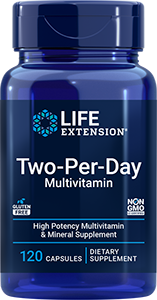Protein

Learn about Amino Acids and what they do
By Strength Tree
There are 22 amino acids that human beings derive nutritive value from. Of these, nine are considered "essential" amino acids, which means you need them to live and they must be taken in by way of food as the body cannot produce them on its own. The other 13 have various benefits but do not necessarily need to be in the diet as the body can synthesize them if it is in need.
Essential Amino Acids
These 9 amino acids are "essential" because they collectively support just about every major life-sustaining function in the body.
In alphabetical order, the essential amino acids are:
- Histidine
- Isoleucine
- Leucine
- Lysine
- Methionine
- Phenylalanine
- Threonine
- Tryptophan
- Valine
These amino acids are only found in protein, which is why it is considered a vital part of the diet. Not all protein types have equal amounts of these essential aminos, however, and some are lacking one or two of them entirely. A protein source is said to be "complete" when it contains at least some amount of all nine of the essential amino acids.
Products
Non-Essential Amino Acids
Many of the 13 non-essential amino acids are needed for regular function throughout the body, but they are considered "non-essential" because they can be synthesized from other types of amino acids.
They are:
- Alanine
- Arginine
- Asparagine
- Aspartic Acid
- Cysteine
- Glutamic Acid
- Glutamine
- Glycine
- Ornithine
- Proline
- Selenocysteine
- Serine
- Tyrosine
Like the essential amino acids, these tend to abound in protein sources. So long as you are getting enough of a raw amount of protein, however, the actual non-essential amino acid content of your diet doesn't really matter in most circumstances, as the body will manufacture these from other types of excess aminos.
Complete Protein Food Sources
If you are not eating a vegan or vegetarian diet, just about every type of meat from an animal or fish contains all of the essential amino acids. Quantities of each specific amino do vary, however, with beef, eggs, milk and cheese largely seen as the best overall source.
Vegan Protein
If meat and dairy are off the table, there are still a variety of plants and legumes that contain complete protein. Some of the most commonly found options are soybeans, black beans, quinoa, chickpeas, spinach and avocado. There is an even wider range of legumes and vegetables that have incomplete protein, but can be easily combined in a salad or similar dish to provide all of the essential aminos.
Protein Intake
Daily Reference Intake (DRI)
- Sedentary Man - 56 grams per day.
- Sedentary Woman - 46 grams per day.
Comes out to be 0.36 grams per pound of body weight or 0.8 grams of protein per kilogram.
Protein Supplements
Various supplements are also available, usually in the form of a protein powder that contains all of the essential amino acids. These tend to be made from whey protein, which means they are technically incompatible with a vegan diet.
A market of vegan-friendly powdered supplements has sprung up to address this need. The most popular options at present are soy, peas, brown rice and hemp.
Conclusion
As you can see, essential amino acids and protein are about more than just muscle building; without them, you simply can't function for very long. This is why proper protein intake is critical, even if you're eating a vegetable-based diet or engaging in a program of rapid weight loss.



